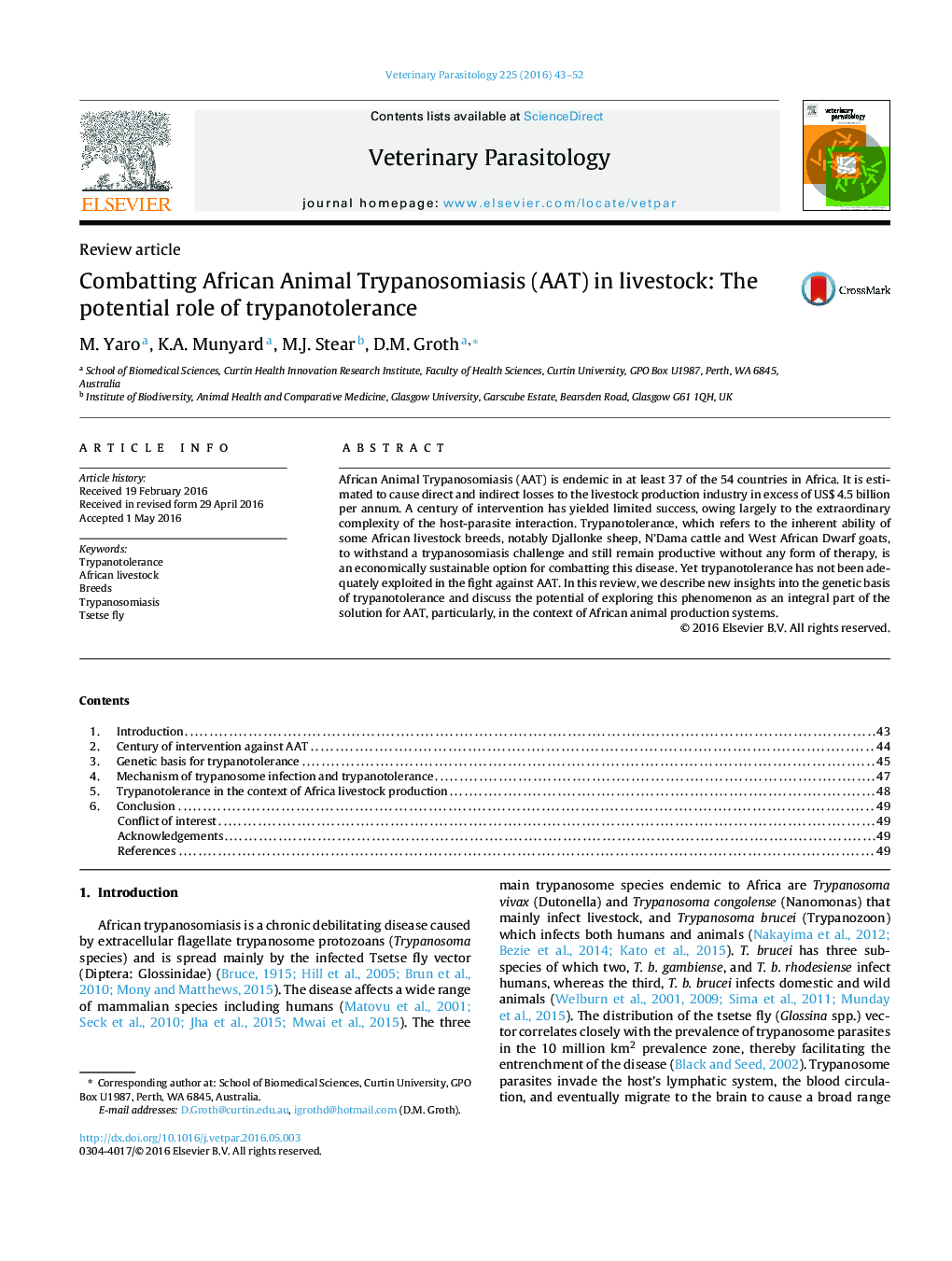| Article ID | Journal | Published Year | Pages | File Type |
|---|---|---|---|---|
| 5802109 | Veterinary Parasitology | 2016 | 10 Pages |
â¢African animal trypanosomiasis is a major livestock health challenge in Africa.â¢The current perspective on the complexity of trypanosome parasites- host interaction.â¢There is the need to identify refined trypanotolerant QTL to facilitate genomic selection.â¢Using trypanotolerance to control AAT is compatible with the livestock production systems in SSA.
African Animal Trypanosomiasis (AAT) is endemic in at least 37 of the 54 countries in Africa. It is estimated to cause direct and indirect losses to the livestock production industry in excess of US$ 4.5 billion per annum. A century of intervention has yielded limited success, owing largely to the extraordinary complexity of the host-parasite interaction. Trypanotolerance, which refers to the inherent ability of some African livestock breeds, notably Djallonke sheep, N'Dama cattle and West African Dwarf goats, to withstand a trypanosomiasis challenge and still remain productive without any form of therapy, is an economically sustainable option for combatting this disease. Yet trypanotolerance has not been adequately exploited in the fight against AAT. In this review, we describe new insights into the genetic basis of trypanotolerance and discuss the potential of exploring this phenomenon as an integral part of the solution for AAT, particularly, in the context of African animal production systems.
